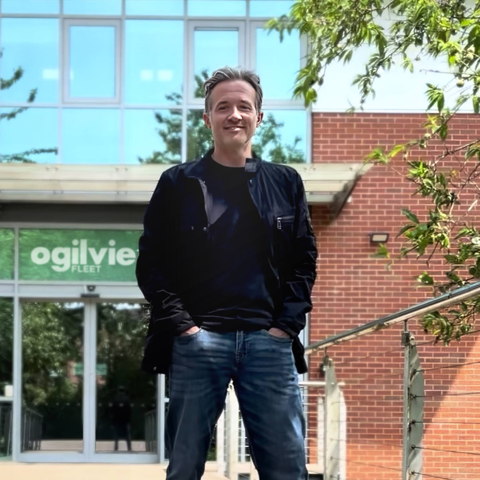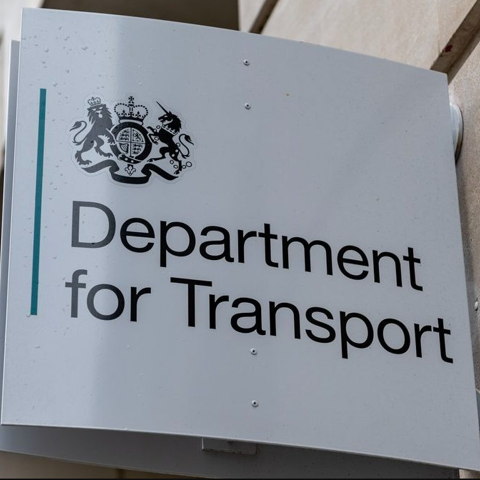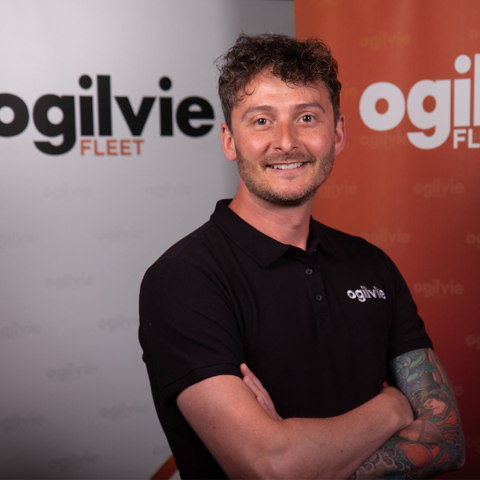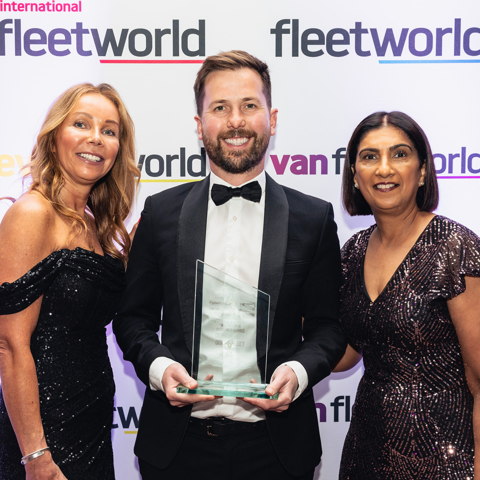Meet the MD – Gordon Stephen
Posted on 28 Feb 2017
9 min read
Fleet Leasing recently sat down with our Managing Director Gordon Stephen to find out more about what he does at Ogilvie Fleet and how he got to where he is. The orignal article can be found here.
Gordon Stephen, MD at Ogilvie Fleet, explains his career path in leasing.
I was quite interested in working for an oil company or an oil service company but when I finished my postgrad diploma in offshore engineering the oil price absolutely crashed.
Normally 28 or 29 people [out of 30 people on the course] would get a job but when I left I think two people had jobs. So I came back to Edinburgh, worked in a bar for a few months, signed on with an agency and I got a phone call saying “listen, we’ve got a job interview with a car leasing company”.
The MD of the leasing company [Cochranes Leasing] who interviewed me hadn’t been to university and was quite impressed I had a degree, and that probably got me the job.
Some jobs it’s useful to have a degree but I think if somebody is keen, enthusiastic and quite bright it doesn’t matter whether they went to university, college or came straight from school.
Once I’d been at Cochranes Leasing about a year I was really quite interested in leasing and I thought it was quite exciting. Cars are quite good fun, there was the finance element, there was the sales part of it.
I was involved in the purchasing and disposals. I just liked the fact that it was very varied, that’s what got me and ultimately that was the reason why I left GE because you were pigeon-holed; I was in sales and that was it.
I had a lot of experience in purchasing and residual values and they didn’t need any of that. When the opportunity came to go to Ogilvie – Steadfast Contracts as it was then – they had only about 700 vehicles on the fleet and it was like going back to where I’d been six years before, having to create a new set of residual values, get a new computer system up and running, go out and find customers.
I like the variety. I couldn’t go back to a big leasing company again; I don’t think it would suit me.
Moving from working for a big company like GE where it was safe – it was a big company, you didn’t have to worry about things like credit, you didn’t have to worry about where the customers were going to come from – and going to work for Steadfast Contracts, which was very small, was exciting but at the same time it was quite daunting.
The company was losing money when I joined and it could have gone under. It was haemorrhaging customers. I was fairly confident that we could turn it around but you don’t know. And going to a much smaller company when finance was tight, getting credit lines was not particularly easy, so I think that was probably the biggest decision I made. It was a lot of hard work to turn it around.
We didn’t have quite the sophistication [of a larger leasing company] but we could give a very local service. We started dealing just with customers who were only 40 to 50 miles away so if they needed a car we could have one dropped off.
I’d deliver cars myself. I’d take them to the garage, get them cleaned before they went out. It was just a question of all hands to the pump to make sure we got the job done.
When my boss Jim McQuade left Steadfast in 1998 to be a dealer principal at one of Ford’s bigger dealerships, I got his job. We had about 1,500 vehicles on the fleet back then, and now we’ve got 15,000 – so we have certainly moved on from just being a little company. I think there were about eight of us in 1998 and now we’ve got 85 employees.
I’ve always thought that customer service is the most important thing and I still stand by that today. There are always going to be people out there that are cheaper than us – always – but we’ve won customer service awards from Fleet News and ExpertEye because I think that we consistently give a high level of service and I think that there are enough customers out there who realise that service comes at a price, and they are prepared to pay for it.
I sent an email to my staff after we won the Fleet News customer service award saying how incredibly proud I was of them because that was an absolute fantastic achievement. It was one of my highlights and I’m not just saying that! It was very important to us. Also, the ExpertEye award, which we have won six times, is important to us because customers are scoring us well in every department and that makes me proud of the staff I’ve got and how hard they work to make sure customers get the service they require. On a regular basis I get emails or letters from customers saying that people have gone out of their way to do things, and that makes me happy because if the staff are motivated and happy they are going to deliver a good service and customers will stay with us.
I wanted to get as far as I could [in my career]. Did I believe MD was where I was going to get to? Yes, but if I’d gone down a different route and I’d been operations director or sales director I don’t know how disappointed I would have been. But I think ultimately MD means you are controlling the different parts of the business and I had quite a good experience across most parts of leasing. When you work for a smaller leasing company you have to get involved in everything so I think it suited me that I had worked in most departments. Sometimes if people come in with just a sales background or an accountancy background I don’t always think that’s the best background, because there is an awful lot to leasing.
A good MD should not be frightened to fail. You need to take a bit of risk. And if you want to expand you have to delegate – if you hold everything in you’re not going to get on. You’ve got to empower staff to make decisions and you’ve got to lead by example as well. It’s important you’re not telling people one thing and doing something different yourself. You’ve got to roll up your sleeves when you have to. Certainly when you work for a smaller company that’s what you need to do. Whether it’s photocopying, washing cars or making cups of tea you’ve got to get on with it and not think ‘that’s not my job’. People appreciate it if they know you’re in it with them. Don’t be scared to admit when you’re wrong. If you have made a bad decision you need to put your hand up and say “yep, that was a bad decision”. I think as long as you learn from it, that’s fine.
I went to see a motivational speaker, Jack Black, probably around 1996-97, and that was very interesting. It was all about believing in yourself and it certainly energised me and made me want to improve. He stopped me drinking coffee at work. He said that coffee interfered with your thought process and coming up with ideas. I used to drink eight or 10 cups of coffee a day – now I don’t drink a coffee at all at work.
I started off managing people when I hadn’t got any experience. Over a period of time you find your own style and you look back on years ago and think, ‘I would definitely handle it differently now’. Maybe when you’re younger you make more rash decisions. I am certainly more considered when I make a decision now and I think that just comes from experience. It comes from listening to people.
If you want a job that is fairly precise, where you know what is going to happen every month or every year, I don’t think leasing is necessarily the job for you. But if you quite like taking a bit of risk, if you enjoy getting involved in different things, I think it is a great job.
You’ve got to be prepared for a rollercoaster ride in leasing. I think I’ve been through three recessions since I started leasing and three times the residual values have taken a fairly serious drop, so your profit and loss can be all over the place and you need to be prepared for that. Extending vehicles with customers probably saved our bacon. If someone was on a three-year contract, getting more rentals out of the asset before having to sell it certainly helped us.
Making sure you’ve got enough funding was a harsh lesson because in 2008 a lot of the funders just deserted the contract hire market. Making sure you’ve got enough cover, enough funding, is something I’ve learned, as well as improving your processes and making sure you run a lean ship.
Once you’ve been through a couple of recessions you understand that it is tough but it will come to an end at some point. You just get on with it. And it’s going to happen again. There will be another recession at some point, used car values will drop and that will affect the profitability – but you need to be prepared for that.
Gordon’s timeline:
1981-1985: Degree in civil engineering at Edinburgh University.
1985-1986: Postgraduate diploma in offshore engineering at Robert Gordons, Aberdeen.
1987: Joined Cochranes Leasing.
1988: Promoted to purchasing manager.
1989: Cochranes sold to Avis Fleet Services.
1990: Became area sales manager at Avis Fleet Services.
1992: GE Capital bought Avis Fleet Services.
1993: Joined Steadfast Contracts (now Ogilvie Fleet) as sales manager.
1995: Promoted to divisional director of Ogilvie Management Services.
2000: Name changed to Ogilvie Fleet.
1998: Promoted to managing director of Ogilvie Fleet.
2002: Became a director of Ogilvie Group.
2012: Ogilvie Fleet won the Fleet News customer service award and FN50 customer service award.
Subscribe to our Newsletter
Latest Articles
We only use cookies to help improve our website. View our privacy policy to see how.



